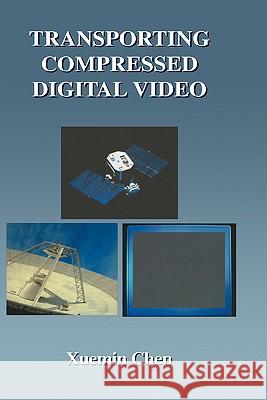Transporting Compressed Digital Video » książka
Transporting Compressed Digital Video
ISBN-13: 9781402070112 / Angielski / Twarda / 2002 / 262 str.
The purpose of Transporting Compressed Digital Video is to introduce fundamental principles and important technologies used in design and analysis of video transport systems for many video applications in digital networks. In the past two decades, progress in digital video processing, transmission, and storage technologies, such as video compression, digital modulation, and digital storage disk, has proceeded at an astounding pace. Digital video compression is a field in which fundamental technologies were motivated and driven by practical applications so that they often lead to many useful advances. Especially, the digital video-compression standards, developed by the Moving Pictures Expert Group (MPEG) of the International Organization for Standardization (ISO) and the International Electrotechnical Commission (IEC), have enabled many successful digital-video applications. These applications range from digital-video disk (DVD) and multimedia CDs on a desktop computer, interactive digital cable television, to digital satellite networks. MPEG has become the most recognized standard for digital video compression. MPEG video is now an integral part of most digital video transmission and storage systems. Nowadays, video compression technologies are being used in almost all modern digital video systems and networks. Not only is video compression equipment being implemented to increase the bandwidth efficiency of communication systems, but video compression also provides innovative solutions to many related vid- networking problems. The subject of Transporting Compressed Digital Video includes several important topics, in particular video buffering, packet scheduling, multiplxing and synchronization.











